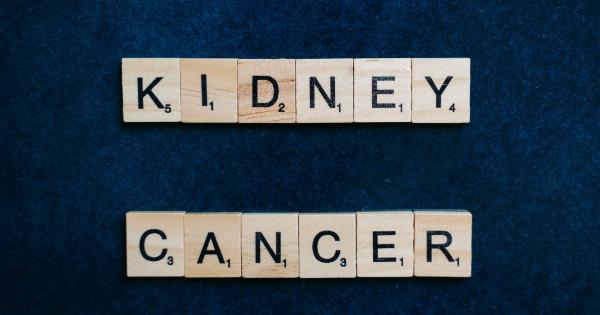Kidney cancer is a type of cancer that begins in the kidneys, the bean-shaped organs that filter waste products from the blood and produce urine.
It can affect anyone, but it is more common in people over the age of 50 and those who have a history of smoking, obesity, high blood pressure, or a family history of kidney cancer.
Types of kidney cancer
There are several types of kidney cancer, but the most common is renal cell carcinoma (RCC), which accounts for about 90% of cases. Other types include:.
- Transitional cell carcinoma (TCC): This type of kidney cancer begins in the lining of the renal pelvis, the area where the urine collects before moving to the bladder.
- Wilms’ tumor: This type of kidney cancer is most common in children and is usually found in only one kidney.
- Squamous cell carcinoma: This type of kidney cancer is rare and begins in the lining of the renal tubules.
Symptoms and diagnosis
Kidney cancer often has no symptoms in its early stages, but as it progresses, some common symptoms may develop, such as:.
- Blood in the urine
- Pain in the side or back that doesn’t go away
- Loss of appetite or weight loss
- Fever that lasts for weeks and is not due to an infection
- Fatigue
If you have any of these symptoms, your doctor will perform a physical exam and order some tests, such as:.
- Urinalysis: This test checks for the presence of blood and other abnormalities in the urine.
- Blood tests: These tests check for elevated levels of certain substances, such as creatinine, which can indicate kidney damage or cancer.
- Imaging tests: These tests, such as CT scans, MRIs, and ultrasounds, can help visualize the kidneys and any tumors present.
- Biopsy: A tissue sample is taken from the kidney and examined under a microscope to confirm the presence of cancer cells.
Treatment options
The treatment for kidney cancer depends on the stage of the cancer and your overall health. Treatment options include:.
- Surgery: The most common treatment for kidney cancer is surgery to remove the affected kidney or part of it. In some cases, surgery may also be done to remove any lymph nodes or other tissues that have cancer.
- Radiation therapy: This treatment uses high-energy x-rays to kill cancer cells. It is usually used in combination with surgery or when surgery is not an option.
- Targeted therapy: This treatment uses drugs that target specific proteins on cancer cells, blocking their growth. It is often used for advanced or recurrent kidney cancer.
Preventing kidney cancer
Although there is no guaranteed way to prevent kidney cancer, there are certain things you can do to reduce your risk, such as:.
- Quit smoking
- Maintain a healthy weight
- Eat a balanced diet
- Exercise regularly
- Reduce your exposure to toxins in the environment, such as chemicals and radiation
Conclusion
Kidney cancer is a serious disease that can be treated successfully if caught early. If you have any risk factors or symptoms, talk to your doctor and get the appropriate tests to determine if you have kidney cancer.
By taking preventive measures, you can reduce your risk of developing kidney cancer and improve your overall health.































